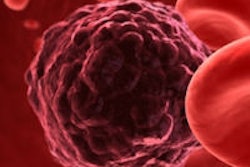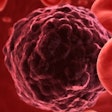A team of U.S. researchers has discovered a new mechanism by which the human papillomavirus (HPV) causes head and neck cancer, and have developed a drug to block it (Oncogene, March 13, 2013).
Though further research is needed, the new agent might offer a safer treatment for these tumors when combined with a tapered dose of standard chemotherapy, the study authors noted in a press release.
The treatment could be an important tool as HPV-positive head and neck cancer has become three times more common since the 1970s and could reach epidemic levels in the future, according to the study authors, from the Ohio State University Comprehensive Cancer Center, Arthur G. James Cancer Hospital, and Richard J. Solove Research Institute.
Their research, which mainly used head and neck cancer cells, shows that a protein produced by the virus blocks a protein made by the host cell. The cell protein, called p300, regulates a gene called p53. This gene both controls cell division and protects the body against cancer by causing cells to die before they become malignant.
By blocking the protein, HPV forces the host cell to live instead of die and to proliferate and form tumors.
The prospective new drug, called CH1iB, prevents the viral protein from binding with the cell protein, according to the study authors. This restores the function of the p53 tumor-suppressor gene and triggers the death of the cancer cells.
Currently, the standard of care for HPV-positive head and neck cancer uses high-dose cis-platinum (Cisplatin), a chemotherapy drug that causes serious side effects that are difficult for patients to tolerate. The drug's toxicity raises the need for safer therapy, and, although further testing is necessary, combining CH1iB with a low dose of cis-platinum might one day provide an alternative, the researchers concluded.



















